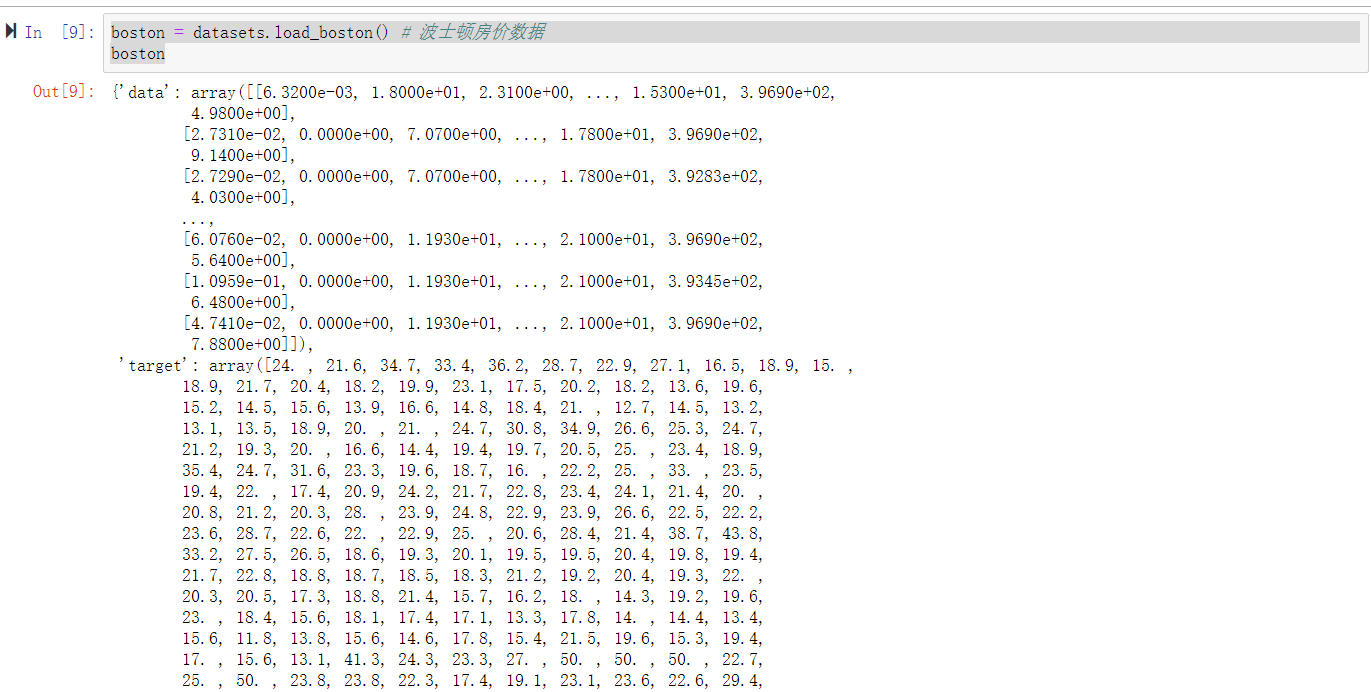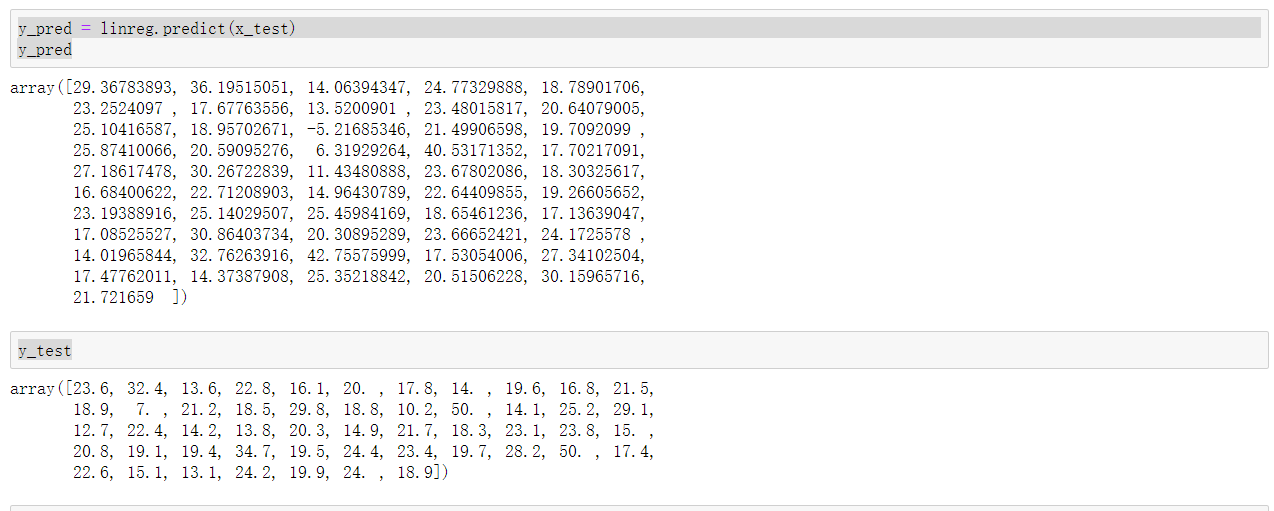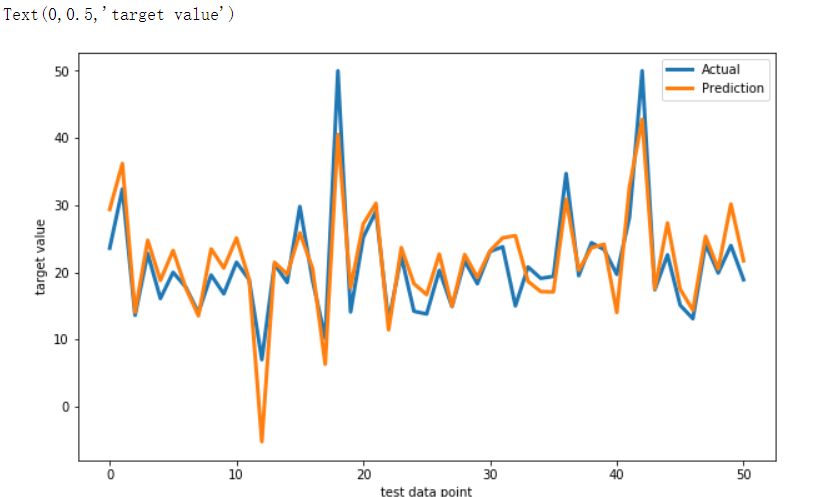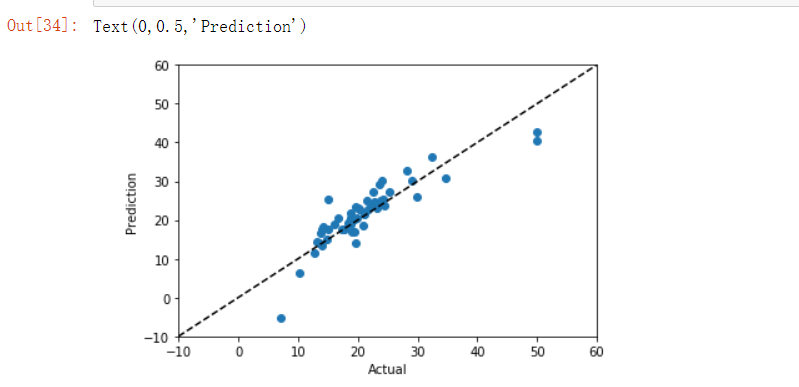from sklearn import datasets # 数据集
from sklearn.model_selection import train_test_split
from sklearn import linear_model
import matplotlib.pyplot as plt
boston = datasets.load_boston() # 波士顿房价数据
boston

# 创建训练集 与 测试集
x_train,x_test,y_train,y_test = train_test_split(boston.data,boston.target,test_size=0.1,random_state=42)
print(x_train.shape,x_test.shape,y_train.shape,y_test.shape)
# 训练数据
linreg = linear_model.LinearRegression()
linreg.fit(x_train, y_train)
# 得出预测值
y_pred = linreg.predict(x_test)
y_pred

plt.figure(figsize=(10,6)) # 设置大小
plt.plot(y_test,linewidth=3,label='Actual')
plt.plot(y_pred,linewidth=3,label='Prediction')
# 显示上面设置的名字与底部
plt.legend(loc='best')
plt.xlabel('test data point')
plt.ylabel('target value')

plt.plot(y_test,y_pred,'o')
plt.plot([-10,60],[-10,60],'k--')
plt.axis([-10,60,-10,60])
plt.xlabel('Actual')
plt.ylabel('Prediction')
